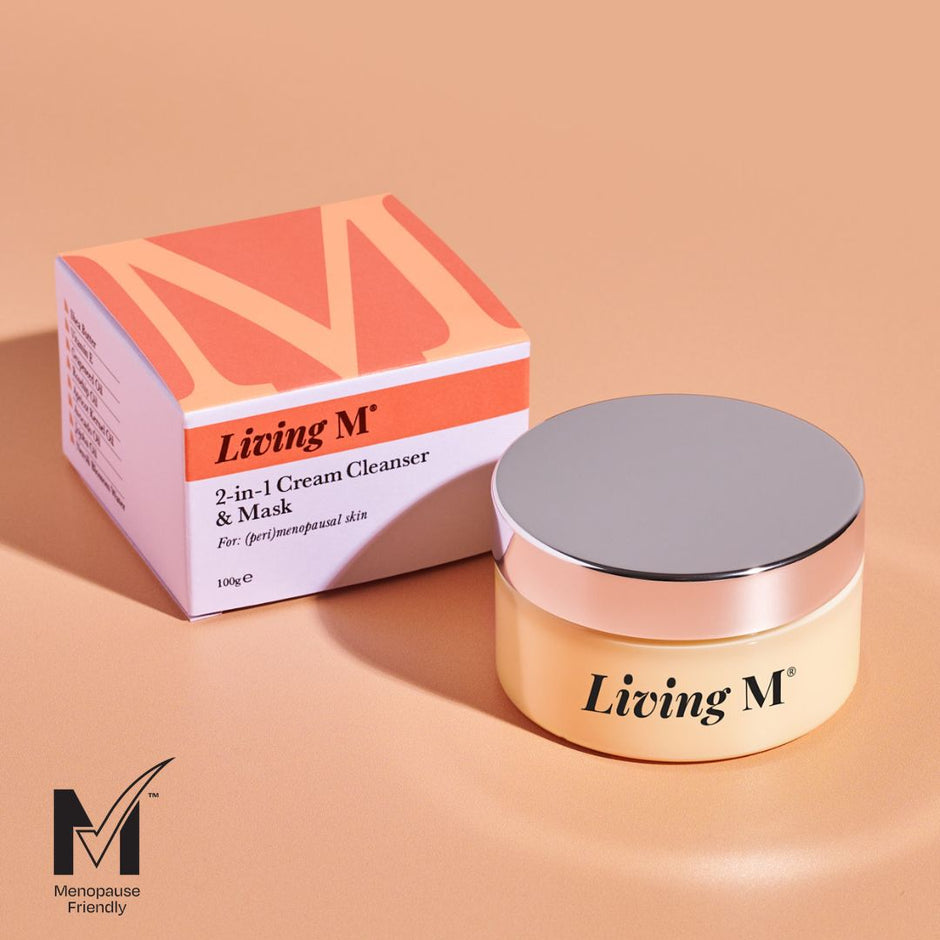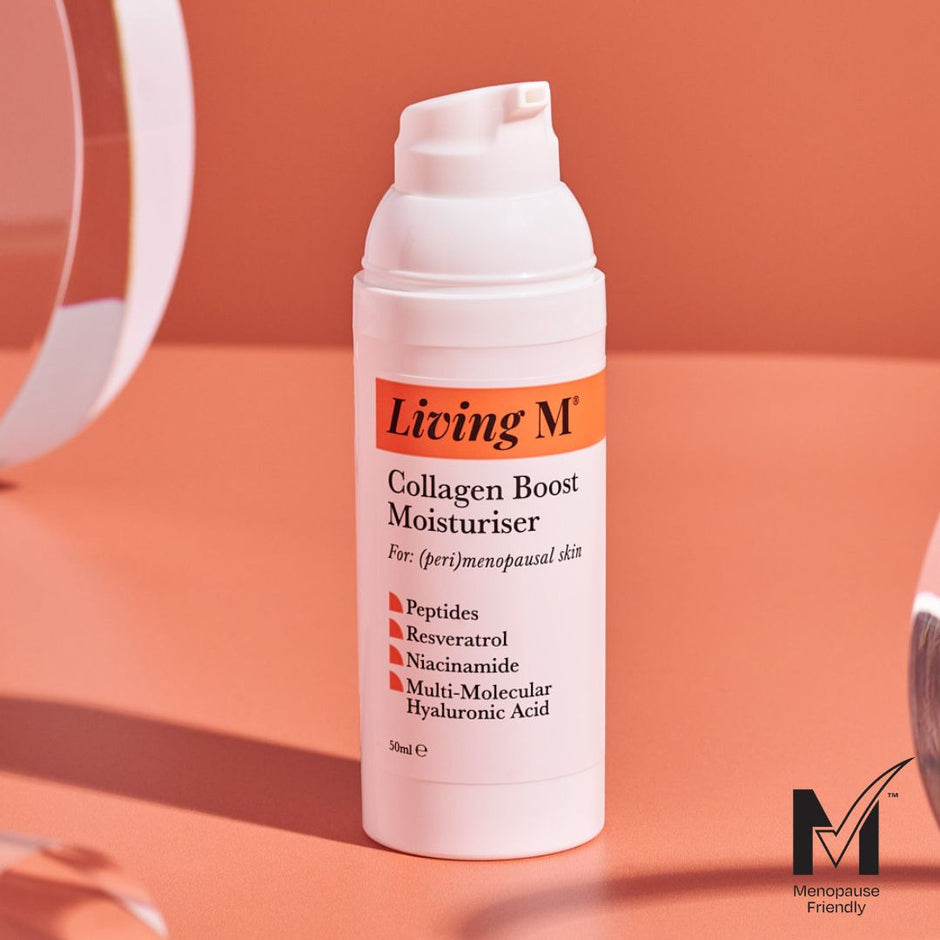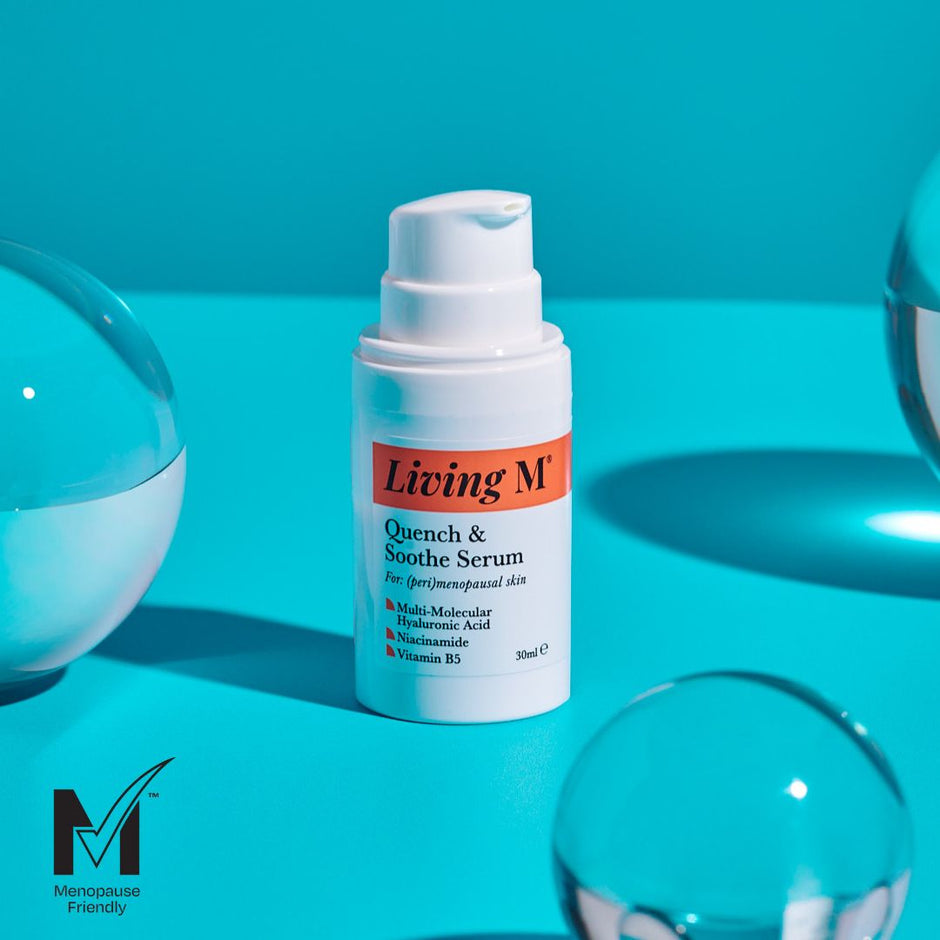You are not alone. Whilst we love Christmas, we know first-hand how it doesn’t always mix well with menopause and it's completely normal if you find your mood dipping around the festive season. The good news is there is a lot we can do to make things easier on ourselves.
HOW MENOPAUSE AFFECTS OUR MOOD
It will probably come as no surprise to you to learn that hormones can impact our mood. We often say perimenopause is like being a teenager in reverse. Menopause can be a real hormonal rollercoaster. Our hormones are in constant flux in perimenopause and menopause and this can have a significant impact on our mental health and emotional wellbeing.
Oestrogen. Oestrogen levels are linked to mood as they regulate several of the “happy hormones”. Serotonin, norepinephrine, and dopamine all have mood-boosting properties and are all impacted by declining levels of oestrogen. Low levels of oestrogen are linked to low mood, anxiety and feelings of depression.
Progesterone. This hormone plays an important role in your menstrual cycle and levels drop away as we go through perimenopause and menopause. Progesterone is known to have a calming effect on your mood and helps promote relaxation and good sleep. When progesterone levels decline in perimenopause and menopause, it can cause a rise in irritability, mood swings, and brain fog.
Testosterone. Often seen as the 'male' hormone, it plays a key role in the female body too. It declines slowing in menopause and can impact mood, cognitive function and libido.
Oxytocin. Often referred to as the 'love' hormone. Oxytocin sends chemical messages to the brain controlling key aspects of human behaviour. As oestrogen production declines we see a noticeable decline in oxytocin levels too. This can impact our cognitive abilities, mood and can cause a drop in libido.
how do hormone changes impact our mental health?
Fluctuating hormone levels can be responsible for many psychological changes during perimenopause and menopause. This can impact your mental health, emotional well-being, and quality of life. It can sometimes be hard, particularly in perimenopause when you may still be having regular periods, to realise that your hormones are causing you to feel this way. Life can be pressured during this time and it can often take a while for women to realise that perimenopause is causing their mental symptoms. This can be made worse with the extra pressures something like the festive season brings. Alcohol, stress and lack of sleep can all make menopausal symptoms worse.
Mood swings. Perimenopause can be an emotional rollercoaster and many women experience mood swings. Similar to the changes you experience during your period but in menopause they can be much more extreme. A lot of women report feeling flat or low or just not like themselves anymore. This is completely normal so if you find yourself feeling a little flat or low this Christmas when you usually would be excited your hormones are to blame and know you are not the only one.
Anxiety or panic attacks. As well as mood swings many menopausal women suffer from anxiety as a result of fluctuating oestrogen and progesterone. Some women going through menopause start to experience panic attacks – a feeling of sudden and intense anxiety with physical symptoms – a racing heartbeat, feeling dizzy, sweating and nausea.
Irritability. It is very common to feel more irritable in perimenopause. Hormonal changes, lack of sleep and other menopausal symptoms can all contribute to this. So if you are feeling more grumpy than christmassy this again is completely normal.
Feeling unhappy or depressed. According to Mental Health UK, during menopause, it’s common to experience mood changes such as irritability, sadness, lack of motivation, aggressiveness, problems focusing, stress, difficulty concentrating, and depression. Much like constant premenstrual syndrome (PMS), these effects can cause emotional strain. Some women can also suffer feelings of low self-esteem, loss of confidence and loss of interest in things they previously enjoyed.
Feeling overwhelmed. Women report feeling overwhelmed and unable to cope with things they previously found easy or manageable. The extra pressures of the festive season can feel overwhelming if you are coping with menopausal symptoms
WHAT CAN HELP MANAGE OUR HORMONES IN MENOPAUSE?
The good news is there is a lot we can do to help ourselves feel better over the festive season.
Priortise Rest & Learn to Say NO! Poor sleep can make symptoms worse. We know that, in menopause getting enough sleep a tall order but there are things you can do to try and get proper rest. Christmas is BUSY - with diary commitments, nights out ferrying teenagers and all the shopping that needs to be done it’s easy to start to feel overwhelmed. If you aren’t feeling like yourself getting through a hectic social calendar can feel like a real slog. Whether it’s an invitation to yet another party or the possibility of extra guests for Christmas, realise that it’s ok to say no to things. Try and put yourself first and give yourself a bit of a break. Going through menopause takes a lot of you so go easy on yourself. The world isn’t going to end because you said no to a Christmas party
Go Easy on The Booze (and the caffeine!)
Yes, we know - easier said than done at this time of year! The truth is alcohol and menopause really aren’t a good mix. Not only do menopausal women struggle to process alcohol but drinking has been shown to aggravate menopausal symptoms like hot flushes, anxiety and sleep problems. It can be tempting to have just another glass of wine while wrapping the presents or to reach for another coffee to get you through another busy day, but it might make you feel a whole lot worse.
There are a huge range of non-alcoholic options available now and if you do fancy a tipple try and keep it just at that. If you are drinking remember to stay well hydrated to help ease your symptoms.
Keep Moving . Regular movement is proven to boost mood and makes us healthier and happier. A mix of cardiovascular, strength training and flexibility is perfect for menopausal women. Walking, cycling, running, swimming, yoga and weight training are all excellent for boosting mood and staying fit and healthy. Try to keep exercising over the festive season as much as you can – if you can’t find time to go to the gym get our in the fresh air for a walk.
Do Something Just for You
Try and find a bit of time for yourself every day over the Christmas period. If you are constantly busy your stress hormones will go into overdrive and that can make your symptoms worse. It doesn’t have to be anything huge but a bit of self-care and time for yourself can help you relax and recharge a little. Watch a film, read a book go for a walk, have a long bath, take a nap – whatever you enjoy but make sure you make it a priority.
Focus on what you should be eating not what you shouldn’t
We all know that losing and maintaining weight in menopause can be a real challenge. Christmas is full of food temptation - mince pies, Christmas pudding, chocolates, pigs in blankets all delicious but not great for our waistlines or our mood! Excess sugar can also aggravate menopausal symptoms like hot flashes and poor sleep. Try and focus on what you should be eating - turkey is an excellent source of protein and fill your plate with lots of veggies. We aren’t suggesting you avoid all festive treats - enjoy the odd one but try not to over-indulge
Forget About Perfection
There is a lot of pressure surrounding Christmas – for everything to be perfect and for everyone else to have the most wonderful time of the year. Try and give yourself a bit of a break this year. If brain fog gets the better of you and your Christmas pud ends up in the washing machine or you just cannot remember where you hid that present, try and see the funny side. Use your mental state to your advantage. It might sound crazy but that “meh” feeling so many of us get in perimenopause can actually help us. If we just feel we cannot be bothered to care about things we normally would that is ok. Give yourself a break - things are never perfect so lower the bar on your expectations of yourself and that “perfect Christmas” because it doesn’t exist! Just remember to take care of yourself this year.
Stay Connected and Look Out for Each Other. Seeing friends and family can be the last thing you feel like doing when you aren’t feeling your best but it’s so important to stay connected. Pick and choose the social events you go to. You could probably find an excuse to skip that extra Christmas work lunch but Christmas drinks with your girlfriends might just give you the lift you need. It’s good to spend time with people in the same situation. The support we give and receive to friends and family is so important in helping us manage the menopause and the way we feel. Sharing how you are feeling and being open to the support that others can give can make a huge difference to how we live from day to day .
If you are struggling with symptoms and feeling unable to cope there are things that can help you manage your symptoms and feel better.
HRT. If you are finding your symptoms debilitating, HRT (hormone replacement therapy) can successfully alleviate menopausal symptoms for many women. Whilst much has been said about the need to improve national GP training for the menopause, there are many doctors and specialists that are focused on driving this change. We recommend you visit www.mymenopausedoctor for information on managing the perimenopause and menopause. Dr Louise Newson is a GP and menopause specialist, and her website is a brilliant source of information for women going through menopause. There is a very useful section on how to approach your GP to discuss HRT.
Cognitive Behavioural Therapy (CBT). An effective treatment to consider for your psychological and emotional changes during perimenopause and menopause. It is a talking therapy that can help you manage challenges by altering the way you think and behave.
So if you are lacking in your usual Christmas cheer this year, know that you certainly aren’t the only one and that the way you are feeling is common during perimenopause and menopause. With a bit of self care, HRT or not you can make the festive season a whole lot easier to cope with.




